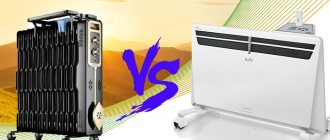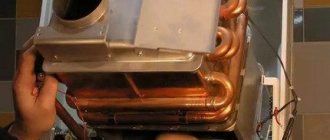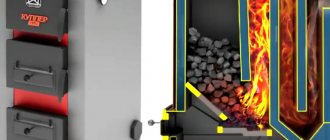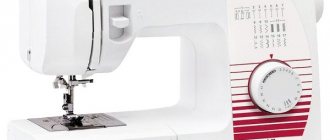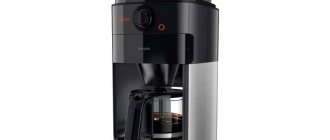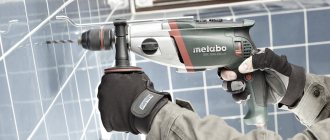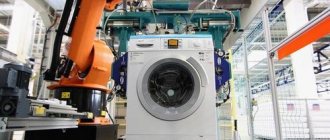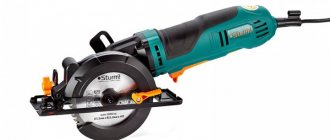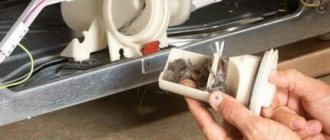Before you understand the question of which is better - an electric boiler or a convector, you need to take into account that the pipe with blue fuel (gas) is not installed in all suburban villages. Therefore, owners of private property heat their homes either with wood, or liquid fuel, or electricity.
The first two options are relevant when people live in a country house permanently. If it is visited for a short time, then the use of electric heating devices is justified. And since electric current is an expensive fuel, when choosing the latter, two indicators are taken into account: feasibility from the point of view of economy, operating efficiency.
In this regard, an electric boiler and electric convectors are the best option. But in order to choose one of them, taking into account the above indicators, you need to understand the two heating devices and understand which one is better. (By the way, high-quality boilers and convectors can be purchased on the website https://profinsys.ru/)
Electric convectors that are directly connected to the electrical network via an outlet.
Belarusian-made products - TEPLOPITBEL for heating houses, cottages, apartments, administrative and industrial premises. For preferential heating.
An electric boiler that heats the coolant and sends it to the radiator network.
The choice between these options raises many questions and a whole storm of emotions. Some people ask whether it is better to use a boiler with radiators or electric convectors, others directly argue that only idiots can purchase an electric boiler when it will be enough to hang electrical panels, because pipes are many times more expensive than wires, they give various other arguments on this topic, but all these arguments are unfounded. Let's try to figure it out in this article.
When to use an electric boiler and when to use convectors
Clear boundaries have been established for 4 and 6. What does this mean? If there are 4 heating devices, this is a very small house, then there is no point in starting with an electric boiler and a radiator hydraulic network; it is easier and simpler to get by with electric convectors. If 5 appliances is the limit of thought, you can already purchase an electric boiler or still look towards convectors, and if there are 6 heating appliances, then starting from this number, an electric boiler is definitely recommended.
Where did this division of 4-6 devices come from and where did the practice of using electric boilers in heating systems come from? It’s all simply about economic efficiency. Only when there are few devices, this economic efficiency is hardly noticeable, and when there are many, it becomes significant, but it does not lie on the surface, it needs to be explained, this economic efficiency. Those gentlemen who are making noise about the fact that an electric boiler is never needed anywhere have not yet explained this efficiency to them.
Belarusian plant Teplopitbel - energy-saving heaters, convectors and electric batteries for discounted heating of the house.
Comparative table of the cost of organizing heating
| House area, m 2 | Heating method | Manufacturer and model | Total cost, rub. | Price of 1 kW of thermal power, rub. |
| 60 | Electric convectors | Ballu BEC/EZMR-2000 (3 pcs.) | 3 000*3 = 9 000 | 1 500 |
| Electric convectors | REDMOND SkyHeat C4519S (3 pcs.): el. control, connection and programming via app | 9 600*3 = 28 800 | 4 800 | |
| Electric boiler and radiators | Protherm Skat 6 KR 13 + Rifar Base 500 x6 (4 pcs.) + harness | 32 000 + 4 200*4 + 5 000 = 53 800 | 8 966,6 | |
| 100 | Electric convectors | Ballu BEC/EZMR-2000 (6 pcs.) | 3 000*6 = 18 000 | 1 800 |
| Electric boiler and radiators | Protherm Skat 12 KR 13 + Rifar Base 500 x6 (9 pcs.) + harness | 35 000 + 4 200*9 + 6 000 = 78 800 | 7 880 | |
| 150 | Electric convectors | Noirot CNX-4 1500 (10 pcs.) | 6 300*10 = 63 000 | 4 200 |
| Electric boiler and radiators | Vaillant eloBLOCK VE 18 Rifar Base 500 x6 (13 pcs.) | 39 000 + 4 200*13 + 9 000 = 102 600 | 6 840 |
As you can see from the table, the larger the area of the house, the higher the cost of each kW of thermal energy obtained when heating with convectors and the lower when heating with an electric boiler. At the same time, the advantages and efficiency of an electric boiler are obvious.
BoilersHeatersElectric boilers
About efficiency
The main postulate is that a central electric boiler is more efficient than individual convectors, despite the fact that it is expensive and electrical panels are cheap.
The electric convector is a high-resistance spiral with high resistance, wound onto a ceramic base and placed in a metal case.
The efficiency of both the boiler and the convectors is the same 98-99%. Where this economic efficiency comes from is not entirely clear.
To clarify, we will use one well-known formula:
A decrease in indoor air temperature by one degree leads to energy savings of 6%
The formula is quite mechanical, plus it does not take into account the outside temperature, but nevertheless it can be used.
What does this formula mean? If we overheated the air in a room by 2 degrees, then we lost 12% of the energy carrier.
What is the economic efficiency of an electric boiler compared to convectors? When we select our heating devices, we calculate their power for the coldest time of the year and add 10-15% to this power, just in case. This is common practice. The boiler is selected with a small margin. With convectors it is a little more complicated, because they are not selected for all the heat loss of the house, but separately according to the heat loss of each room in which these electrical panels will be installed, and plus another small nuisance is that the power step of the convectors is quite large. It is not possible to take a convector with a power of 1070 watts or 1125 watts, we can take a kilowatt, two hundred kilowatts, one and a half kilowatts, two kilowatts and so on.
Energy-saving convector Teplopitbel-Belarusian plant.
When we choose convectors, compared to a boiler for the same house, they will have a power of more than a boiler of 2-4 kilowatts, if we take a house of 200 square meters as an example.
What is the difference between heating a private house with electric convectors?
It is better and more economical to use convectors than an electric boiler in the following cases:
- heated area of a private house is less than 80-90 m
2;
- it is planned to purchase expensive models with precise electronic control and the ability to combine devices through a common thermostat or application;
- temporary residence in a house when the lower operating costs of an electric boiler do not pay for the high cost of purchasing and installing the entire system.
The most common misconception is that “convectors are more economical than an electric boiler, because during their operation, thermal energy is immediately transferred to the room (convector → air), while the thermal energy generated by an electric boiler goes through the cycle electric boiler → coolant → CO distribution → radiators → air.”
This is true, but it is worth taking into account the previously described factors: more stable temperature maintenance by the electric boiler, the presence of stepwise or even smooth power adjustment, the ability to work based on data from an external thermostat - all this has a much greater impact on efficiency, the difference is confirmed by practice and reviews from owners.
The exception is cases when budget electric boilers with stepwise power adjustment without external control and good convectors in the high price segment (from 8-9 thousand rubles) are compared.
Proper placement and connection of the convector to the electrical network of the country house.
What happens during work
Minus 28 degrees, the coldest time we have had during the entire heating season. When the temperature is lower, we can set the power in the boiler, which will cover the heat loss at home, for a given temperature outside, i.e. we will not overload the room. When it’s minus 28 degrees outside, we set the boiler power to 14 kW, when it’s minus 10, we set it to 6 kW, at these kilowatts, the boiler will heat the coolant exactly as much as is required to ensure heat loss in the house.
The regulator on the convector is designed in such a way that it can only regulate the air temperature in a given individual room, but it cannot regulate the power of electric convectors, so when the convector turns on, it produces all its 2 kilowatts, and if our room loses at minus 10 500 watts, then 2 kilowatts overheats the air very quickly. The convector will turn on only when it sees that the air has warmed up enough. This means that it will already be overheated by 2 degrees, these 2 degrees of overheating will lead to the fact that we will lose energy by giving off excess heat to the street.
In addition, the electric boiler can be integrated with a bunker tank. Since we have a hydraulic system, we will charge this buffer tank at a cheap night rate so that the boiler does not turn on at all during the day. There is no way we can store power in an electric convector at night.
Bosch electric boiler
And the third feature, which is allowed when using an electric boiler, but is impossible when using electric convectors - very often people choose combined heating systems, an electric boiler and a wood-burning one, an electric one for convenience, and a wood-burning one in order to heat cheaper. During the day it is heated with wood, at night the electric boiler is turned on at an inexpensive tariff. We cannot integrate electric convectors in any way into the hydraulic system where we have a wood-burning boiler.
Three reasons that lead to the fact that an electric boiler is more attractive for use in a private home than separate electric convectors. In addition, there are technical difficulties that accompany the use of convectors.
There are three such technical difficulties:
- The most unpleasant thing is the increased total power of electric convectors. Since we select convectors not for the heat loss of the entire house, but for the heat loss of each individual room, the result is that we exceed the required power by at least 24 kW, we don’t know where to put them and how to provide them, because we don’t have the allowed power limitless, we are having problems with the introductory machine. When all our convectors turn on at a power that we don’t need, but we can’t adjust it, make it less, plus we have washing machines, a kettle, a TV working, the input machine can knock out. The only way to combat this is to walk around and turn off the heating of certain rooms, but this is not convenient because it is cold there and you need to control it so that they do not freeze completely and on the verge of freezing you will have to come and turn on the heating in this room again. This is a big hassle, somewhere, we will definitely miss something, it is impossible to keep track of everything.
- Electrical network. Anyone who believes that by hanging convectors around the house and plugging them into the nearest outlet you have done everything that is required is deeply mistaken. If you are recording powerful electrical appliances that will work for 5-6 hours, be so kind as to connect a separate cable to each individual convector, because if you have a line on which additional electrical appliances will hang, there will be connections that are in over a long period of time they experience high loads, they can start to heat up and no one can guarantee that everything is done with high quality or that something has not oxidized over time. There is a high probability of wire burnout, resulting in a fire.
- The last difficulty is the inability to control convectors remotely, since we can control an electric boiler via SMS. It is possible to control more precisely, but for this all convectors need to be united into a single network, connected to a device that will receive our remote commands. An electric boiler already has all this. Therefore, the cost of electric convectors is similar to radiators and the electrical network that we will need to connect to each convector. An electric boiler will be comparable in price to a smart home that controls a network of electric convectors. From the point of view of initial costs, convectors only benefit if they are simply plugged into sockets. In all other cases, the price of convectors and a boiler with a hydraulic network is approximately the same. The boiler is a little more expensive, but its imaginary high cost pays off in the first year of operation due to the three features that we described above.
Features of electric boilers
Diagram of operation of an electric boiler.
Until recently, there was an opinion that an electric boiler was only suitable for heating oversized rooms. But this opinion turned out to be wrong. Today, the market offers a wide variety of electric boilers, the power of which ranges from 40 to 100 kW. Such equipment will easily be able to cope with the heating of a room that has an area of up to 1000 m². In addition, an electric boiler can compete in the number of advantages with an oil-fuel boiler.
However, when choosing equipment, it is worth considering not only power, but also many other factors. An electric boiler will allow you to save money, because when purchasing it you will only need to pay for the boiler itself, unlike, for example, liquid fuel equipment, where you will have to pay extra for an attached burner and container. You can save not only during purchase, but also during installation. Thus, installation costs will be minimal. During operation, the electric boiler is also ready to show itself very positively, since it will not require constant maintenance and mandatory cleaning. An electric boiler will not need
Design of a three-phase electric boiler.
fuel costs. Its use allows you to comply with all environmental requirements, and during operation it does not emit foreign odors.
However, such devices still have disadvantages; the main one is that when they are used, it is not possible to allocate a sufficient amount of electrical power that is necessary for operation; in addition, the operation may be affected by interruptions in the operation of electrical networks. But in case of power outages, an electric boiler can be used in parallel in a heating system with other types of boilers. This type of heating system has gained popularity in recent years.

